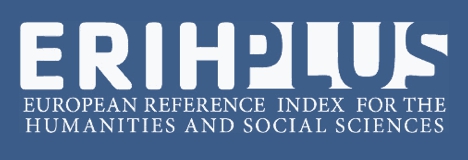The school geography in the context of high school’s reform: an analysis to besides the place
Abstract
The purpose, in this work, is to make an analysis of the consequences for the formative process of secondary students, as well as the damage to the School Geography project, resulting from the release of Geography teaching in all grades of the final stage of basic education, as proposed by Law 13.415 / 2017, which reformulates secondary education in Brazil. Therefore, we strive to understand the reform of secondary education within the totality category (SANTOS, 2006). The applied methodology was based on bibliographical research. We conclude, from the studies carried out, that the release of Geography teaching will contribute to the formation of young people with less capacity for critical understanding of social reality.Certainly, due to not youthful critical view, an ideal scenario will be produced for human submission to technical rationality in this country, as well as for the expansion of rentier capital (MOREIRA, 2018). In relation to the project of School Geography, which aims to contribute to the development of students' spatial thinking, with emphasis on theirs autonomy to think and act on the world, this reform means a blow. This field of knowledge will no longer be compulsory in the final stage of basic education, when the students, due to their advanced age, have greater maturity to understand the central proposal of this science.
References
BRASIL, Lei nº 13.415, de 16 de fevereiro de 2017 e institui a Política de Fomento à Implementação de Escolas de Ensino Médio em Tempo Integral. Diário Oficial da União em 17 de fev. 2017.
CAVALCANTI, Lana de Souza. Ensino de Geografia e demandas contemporâneas. In: ASCENÇÃO, Valéria de Oliveira Roque.... [et. al.] (Orgs.). Conhecimentos da Geografia: percursos de formação docente e práticas na educação básica. Belo Horizonte: IGC, 2017.
HEIDEGGER, Martin. Introdução à filosofia. 2ª ed. São Paulo: WMF Martins Fontes, 2009.
KOSIC, Karel. Dialética do Concreto. 2ª ed. Rio de Janeiro: Paz e Terra, 1976.
LIBANEO, José Carlos. O dualismo perverso da escola pública brasileira: escola do conhecimento para os ricos, escola do acolhimento social para os pobres. Revista Educação e Pesquisa, São Paulo, v. 38, n. 1, p. 13-28, 2012
MOTTA, Vânia Cardoso e FRIGOTTO, Gaudêncio. Por que a urgência da reforma do ensino médio? Medida provisória n.746/2016. Educ. Soc. Campinas. V, 38. n. 139, p.507-524, abr./jun., 2017.
ORTEGA Y GASSET, José. Meditação da Técnica: vicissitudes das ciências cacofonia da física. Rio de Janeiro: Livro ibero-americano limitada, 1963.
SILVA, Alcinéia de Souza; SOBRINHO, Hugo de Carvalho; LEITE, Cristina Maria Costa. Análise crítico-reflexiva da reforma do ensino médio: o ensino de geografia em questão. Revista de Ensino de Geografia, Uberlândia, v. 8, n. 14, p. 128-140, jan./jun. 2017.
SANTOS, Milton. A natureza do espaço: Técnica e tempo, Razão e emoção. 4 ed. 2ª reimpressão. São Paulo: Editora da Universidade de São Paulo, 2006.
SOUSA NETO, Manoel Fernandes. Queime depois de ler. In: SPÓSITO, Eliseu Savério. et al. (Orgs). A diversidade da Geografia brasileira: escalas e dimensões da análise e da ação. Rio de Janeiro: Consequência Editora, 2016.

This work is licensed under a Creative Commons Attribution-NonCommercial 4.0 International License.
Policy Proposal for Free Access Journals
Authors who publish in this journal agree to the following terms:
a. Authors retain the copyright and grant the journal the right of first publication, with the work simultaneously licensed under the Creative Commons Attribution License which allows the sharing of the work with acknowledgment of the authorship of the work and initial publication in this journal.
b. Authors are authorized to take additional contracts separately, for non-exclusive distribution of the version of the work published in this journal (eg publish in institutional repository or as a book chapter), with acknowledgment of authorship and initial publication in this journal.
c. Authors are allowed and encouraged to publish and distribute their work online (eg in institutional repositories or on their personal page) at any point before or during the editorial process, as this can generate productive changes, as well as increase the impact and The citation of published work (See The Effect of Free Access).





















